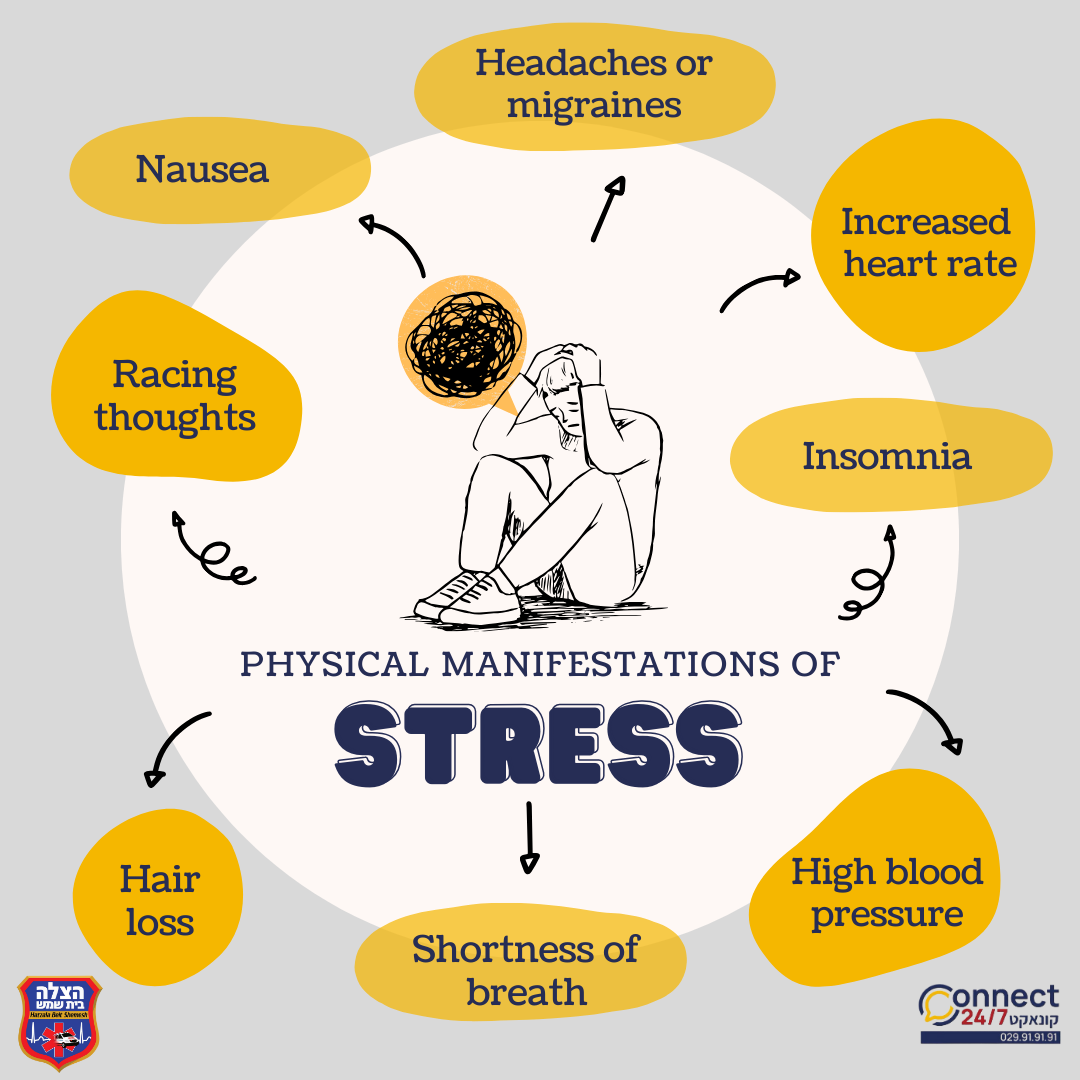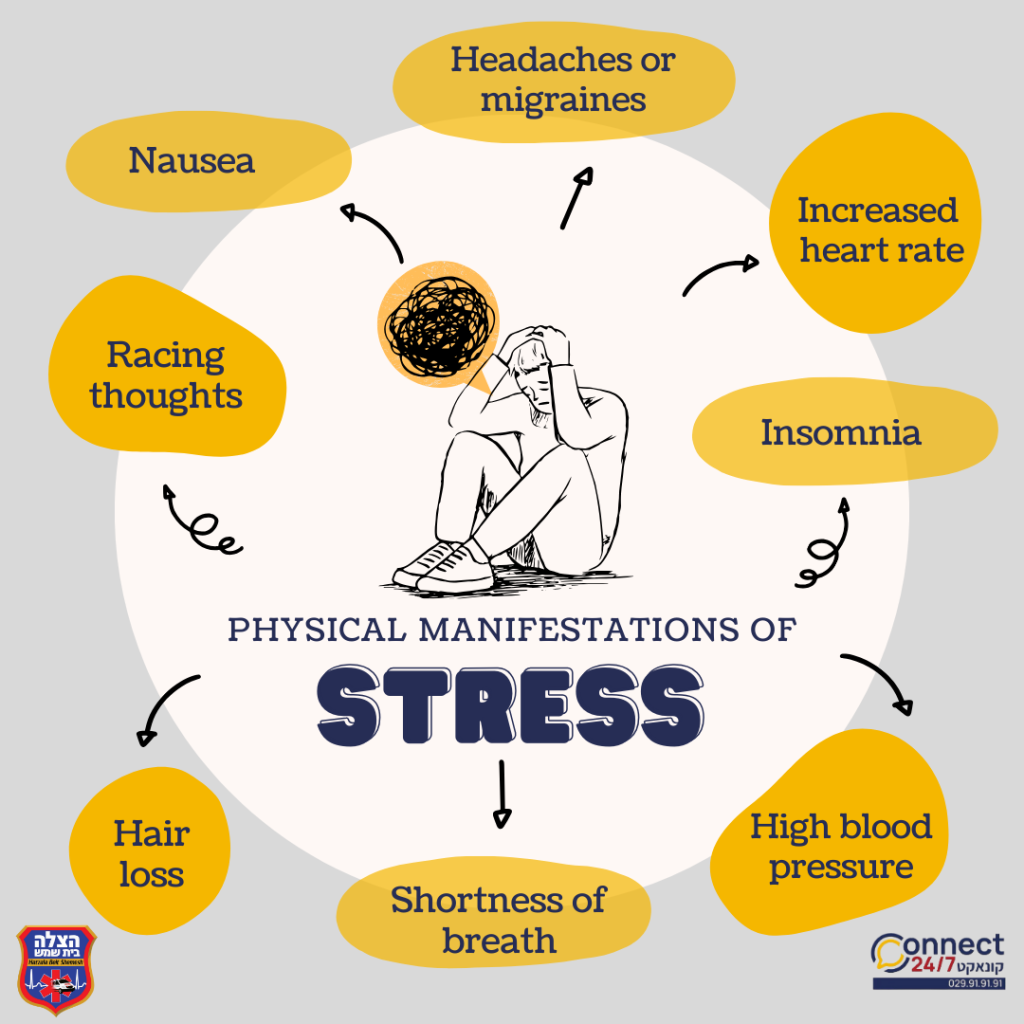Stress is an inevitable part of life, and its impact can extend far beyond just our mental well-being. While we often associate stress with feelings of anxiety or overwhelm, it’s essential to recognize that stress can also manifest itself in physical ways. From nausea to insomnia, our bodies have a unique way of signaling when stress levels are elevated. In this blog post, we’ll explore some common physical manifestations of stress and discuss strategies for managing them effectively.
Nausea:
- Have you ever experienced a queasy feeling in your stomach during times of stress? Nausea is a common physical symptom of stress that occurs when the body’s fight-or-flight response is triggered. When we’re stressed, our digestive system can become disrupted, leading to feelings of nausea or even vomiting. Pay attention to your body’s signals and try to identify the sources of stress that may be contributing to these symptoms.
Hair Loss:
- Stress can take a toll on our hair health, leading to increased shedding or even hair loss in some cases. Chronic stress can disrupt the hair growth cycle, causing hair to enter a resting phase prematurely and fall out more easily. While some degree of hair loss is normal, excessive shedding may be a sign that stress levels are too high. Practicing stress-reduction techniques such as meditation or deep breathing exercises can help promote hair growth and prevent further loss.
Headaches or Migraines:
- Stress-induced headaches are a common complaint among many individuals. When we’re stressed, the muscles in our neck and shoulders can tense up, leading to tension headaches or even debilitating migraines. Managing stress through relaxation techniques, regular exercise, and adequate sleep can help alleviate these symptoms and prevent them from recurring.
Racing Thoughts:
Do you ever find yourself unable to quiet your mind, even when you’re trying to relax? Racing thoughts are a hallmark sign of stress and anxiety. When we’re stressed, our minds can become overwhelmed with worries and concerns, making it difficult to focus or unwind. Mindfulness practices such as meditation or yoga can help calm the mind and bring a sense of peace and clarity.
High Blood Pressure:
- Chronic stress can have serious implications for cardiovascular health, including an increased risk of high blood pressure and heart disease. When we’re stressed, our bodies release hormones like adrenaline and cortisol, which can cause blood pressure to rise. Over time, this can contribute to the development of hypertension and other cardiovascular issues. Managing stress through lifestyle changes such as regular exercise, healthy eating, and stress-reduction techniques can help lower blood pressure and protect heart health.
Shortness of Breath:
Feeling short of breath or experiencing shallow breathing can be another physical manifestation of stress. When we’re stressed, our bodies enter a state of heightened arousal, leading to changes in breathing patterns. Practice deep breathing exercises to help calm the nervous system and restore a sense of balance and calm.
Increased Heart Rate:
- Stress can cause the heart to beat faster than normal as the body prepares for a perceived threat. This increase in heart rate is part of the body’s natural stress response and is designed to help us respond to danger more effectively. However, chronic stress can lead to prolonged periods of elevated heart rate, which can have negative consequences for heart health. Engaging in activities that promote relaxation and stress reduction, such as meditation or spending time in nature, can help regulate heart rate and promote overall well-being.
- Insomnia:
Insomnia:
- Difficulty falling asleep or staying asleep can be a common side effect of stress. Racing thoughts, worry, and tension can make it challenging to relax and unwind at the end of the day, leading to insomnia or poor sleep quality. Establishing a relaxing bedtime routine and creating a calm sleep environment can help promote better sleep and alleviate stress-related insomnia.
Stress is an inevitable part of life, but it’s essential to recognize the physical manifestations of stress and take steps to manage them effectively. By practicing stress-reduction techniques, prioritizing self-care, and seeking support when needed, we can protect our physical and mental well-being and lead healthier, happier lives. Remember, you’re not alone in your journey to manage stress, and there are resources and strategies available to help you along the way.



